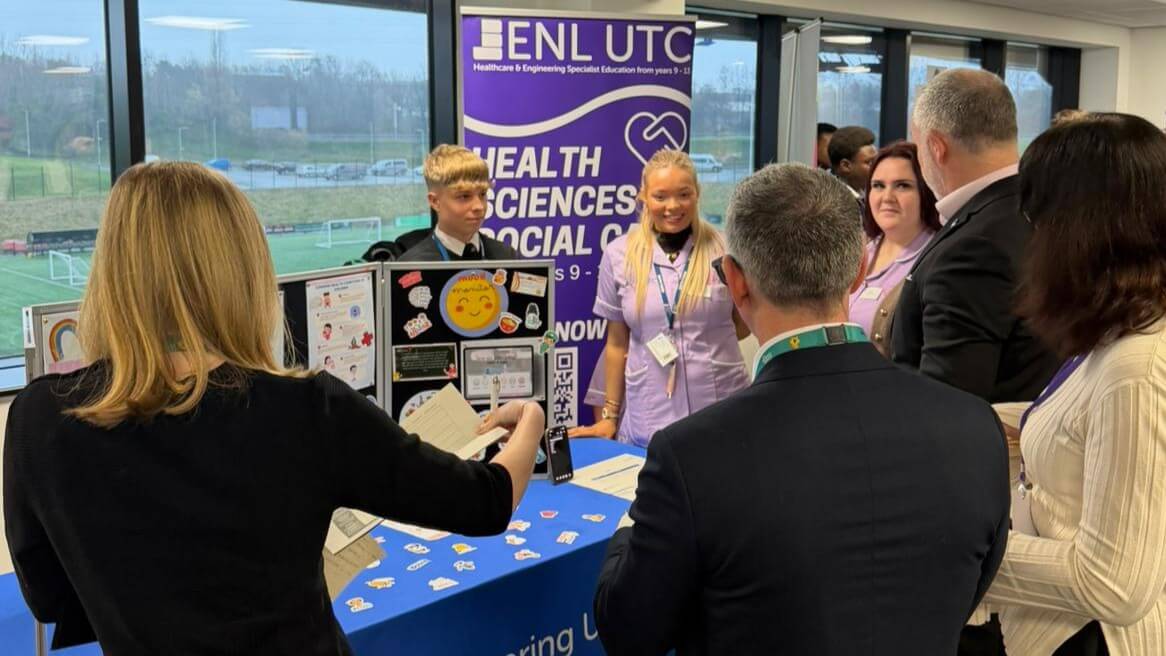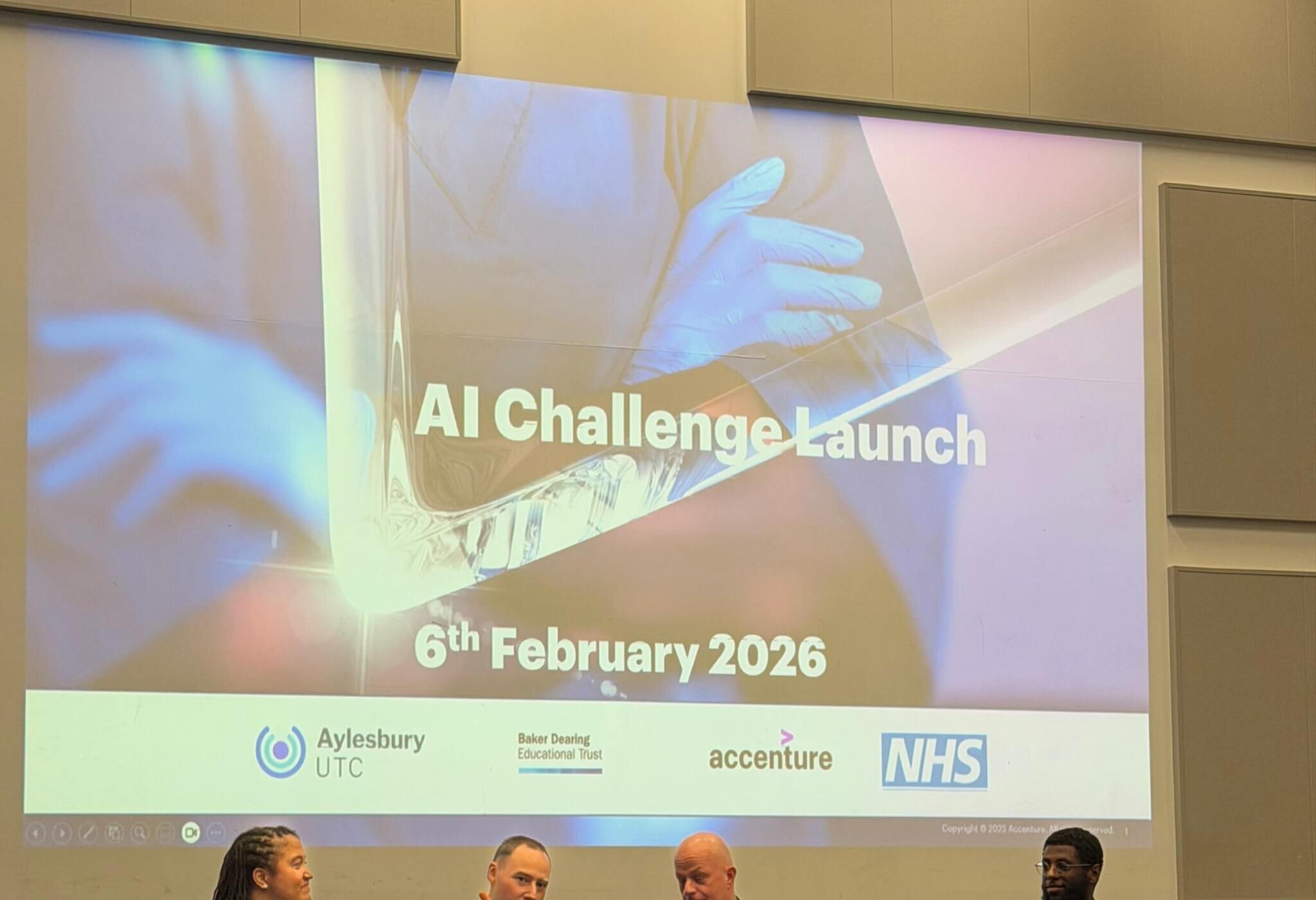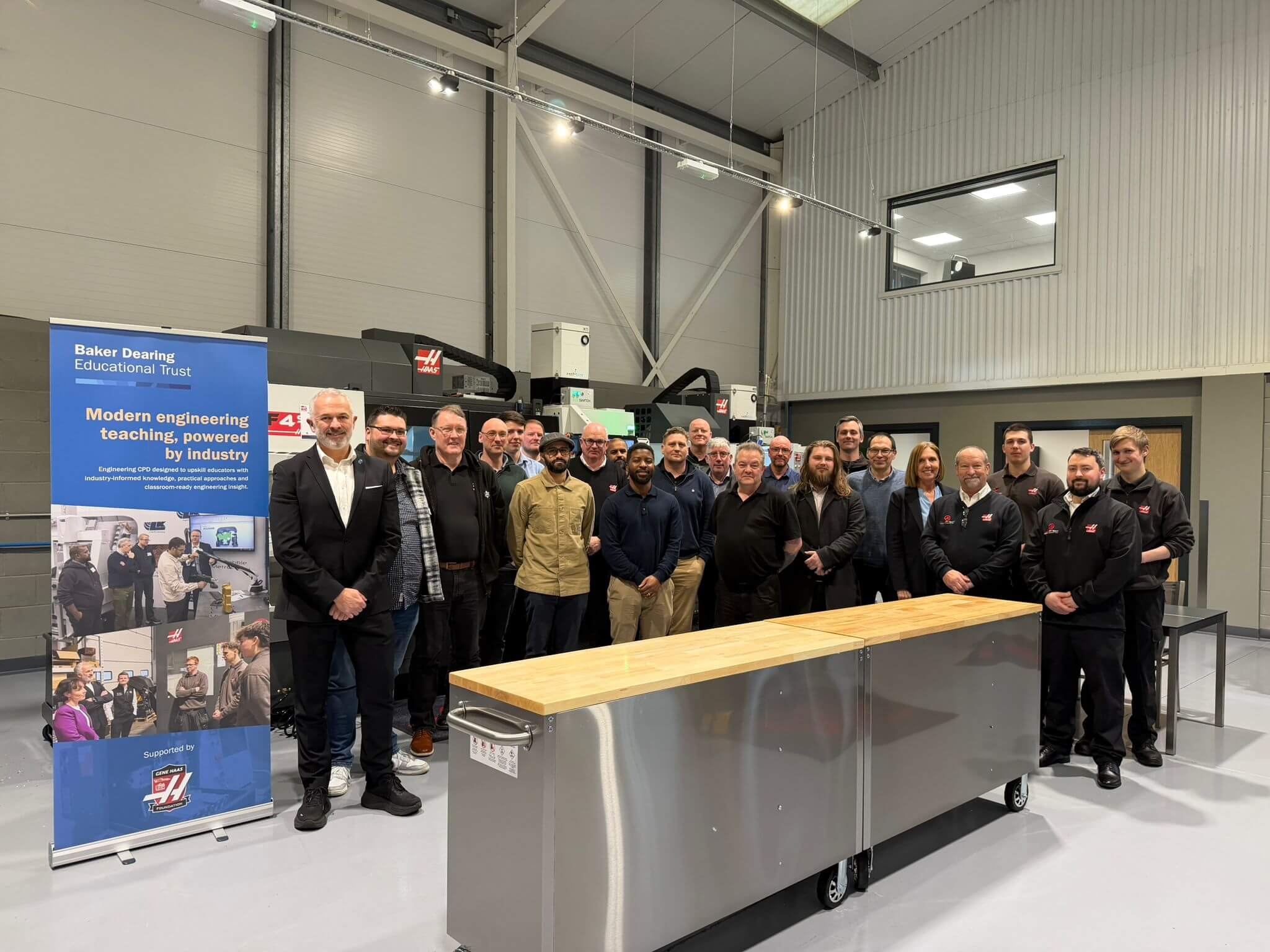Female and non-binary science, engineering and technology students last week worked with Network Rail to tackle stereotyping and look ahead to future careers.
The Baker Dearing Educational Trust and Network Rail organised Shaping the future: empowering young women and non-binary leaders in industry in Doncaster on Wednesday 27 November for University Technical College students.
Over 80 students from eight UTC schools across England attended the pioneering event and engaged with a packed agenda of talks and activities.
Shaping the future was a ground-breaking opportunity for the students, who fed back to Baker Dearing that:
“It was very fun and insightful to learn about women in STEM and what challenges they face daily as well as giving advice for how to overcome these.”
“It was an amazing opportunity to explore career pathways in an industry that I thought, prior to this event, was very niche and inaccessible.”
Firstly, a panel of Network Rail engineers and managers spoke to the students about their careers as women in industry and the challenges they had faced.
One panellist said that the personal protective equipment she was once issued with did not fit women and another revealed that the female changing room at her workplace had been repurposed as a gym by the previously all-male staff.
“We were questioned for our seat at the table. We had to prove ourselves,” one panellist said.

These testimonials are what added impetus to the event, with the panellists highlighting the need for them to speak to school students to encourage female and non-binary people to apply for roles in industry.
In a keynote speech, Baker Dearing’s deputy chief executive Kate Ambrosi, who in January will become the trust’s first female chief executive, encouraged the students to put themselves forward, saying: “Be impressive in interviews, because you are impressive.”
The students also explored how to overcome self-doubt and build confidence in their abilities with a talk on imposter syndrome. This was intended to help students develop the mental tools to tackle the psychological barriers that often accompany underrepresentation in technical fields.
To engage the students’ technical knowledge and skills, they were then tasked with building truss bridges. The students assigned themselves different roles within the teams to handle the design, budget, and other tasks.
While they worked on their bridges, the students were thrown challenges – budget cuts, protected newts, and local opposition – to which they had adapt their plans.
Once their bridges were completed, a spokesperson from each group explained their design, its features, and what challenges they had faced.

The winning team was composed of students from the Doncaster UTC, Lincoln UTC, UTC Sheffield City Centre, and Warrington UTC and were chosen by Network Rail because they had worked as a team, considered accessibility, and how the bridge interacted with the environment.
However, it was noted, all the teams had performed well and any one of them would have been worthy winners.
Following the bridge building event, the students also had a chance to meet with different teams from Network Rail and handle industry equipment such as aerial drones and railway building kit.
Deputy Chief Executive of the Baker Dearing Educational Trust Kate Ambrosi commented:
“This event highlights the vital importance of representation and visibility in STEM fields. By showcasing the achievements and resilience of professionals in the industry, we aim to inspire the next generation of innovators.
“It’s critical that we continue breaking down barriers and ensuring that technical careers are open to everyone.
“The students today are a testament to the incredible talent and enthusiasm out there – it’s the responsibility of educators and employers to nurture it.”
Senior HR Business Partner for Network Rail Daniella O’Donoghue commented:
“It was an honour to host an event in partnership with the Baker Dearing Educational Trust, welcoming young women, and non-binary students from UTCs across the country. The day was filled with engaging sessions that showcased the exciting opportunities within the rail industry, including insights into apprenticeships and how they can be a gateway to rewarding careers.
“Students had the chance to connect with our operational staff, hear from a panel of accomplished female leaders, and participate in interactive activities that reflected Network Rail’s core values of collaboration, empowerment, and inclusion. These activities emphasised the importance of diversity in shaping the future of rail, highlighting how inclusive practices and diverse talent are vital to building a stronger, more innovative, and sustainable railway.
“By continuing our partnership with Baker Dearing, we are proud to empower the next generation to thrive and succeed in shaping this future.”




